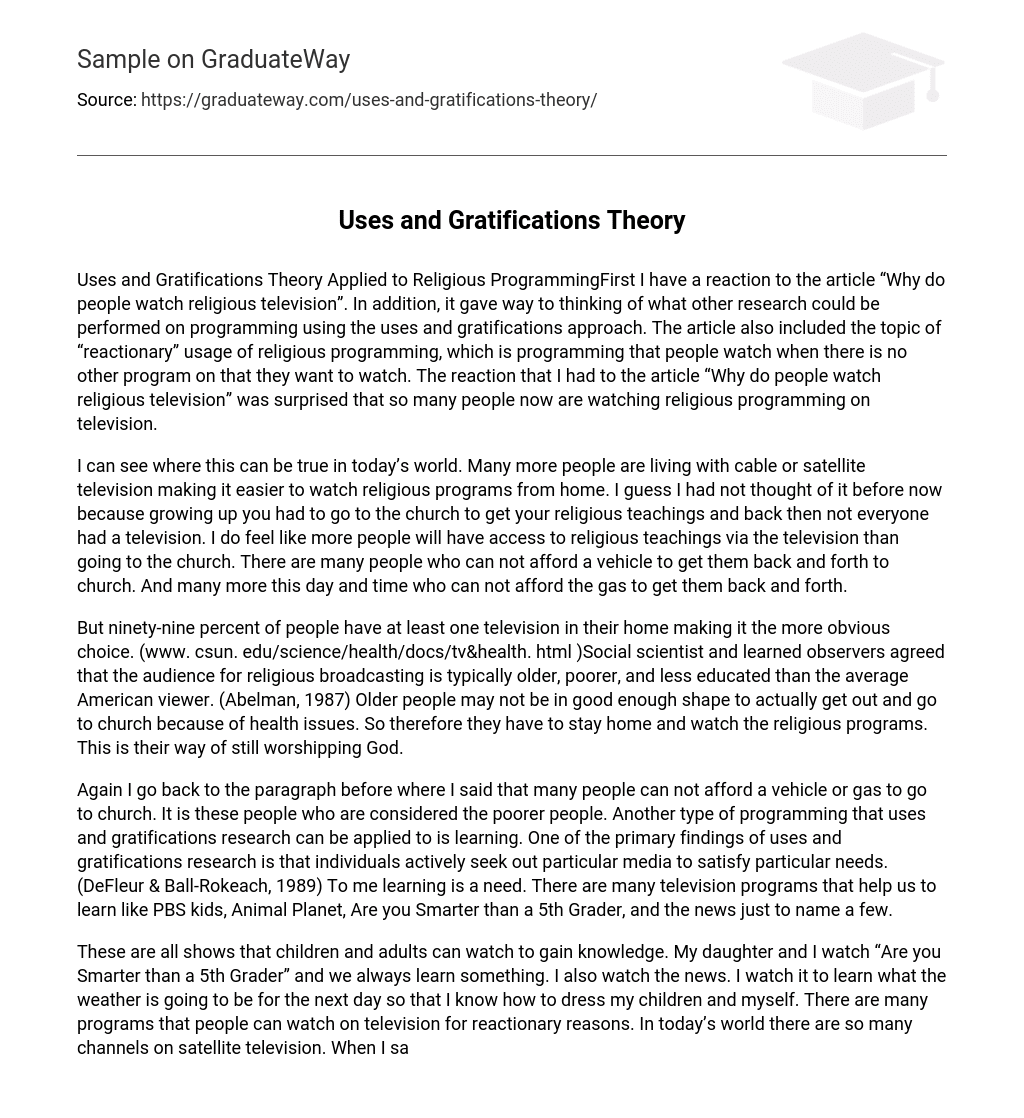First I have a reaction to the article “Why do people watch religious television”. In addition, it gave way to thinking of what other research could be performed on programming using the uses and gratifications approach. The article also included the topic of “reactionary” usage of religious programming, which is programming that people watch when there is no other program on that they want to watch. The reaction that I had to the article “Why do people watch religious television” was surprised that so many people now are watching religious programming on television.
I can see where this can be true in today’s world. Many more people are living with cable or satellite television making it easier to watch religious programs from home. I guess I had not thought of it before now because growing up you had to go to the church to get your religious teachings and back then not everyone had a television. I do feel like more people will have access to religious teachings via the television than going to the church. There are many people who can not afford a vehicle to get them back and forth to church. And many more this day and time who can not afford the gas to get them back and forth.
But ninety-nine percent of people have at least one television in their home making it the more obvious choice. Social scientist and learned observers agreed that the audience for religious broadcasting is typically older, poorer, and less educated than the average American viewer. Older people may not be in good enough shape to actually get out and go to church because of health issues. So therefore they have to stay home and watch the religious programs. This is their way of still worshipping God.
Again I go back to the paragraph before where I said that many people can not afford a vehicle or gas to go to church. It is these people who are considered the poorer people. Another type of programming that uses and gratifications research can be applied to is learning. One of the primary findings of uses and gratifications research is that individuals actively seek out particular media to satisfy particular needs.To me learning is a need. There are many television programs that help us to learn like PBS kids, Animal Planet, Are you Smarter than a 5th Grader, and the news just to name a few.
These are all shows that children and adults can watch to gain knowledge. My daughter and I watch “Are you Smarter than a 5th Grader” and we always learn something. I also watch the news. I watch it to learn what the weather is going to be for the next day so that I know how to dress my children and myself. There are many programs that people can watch on television for reactionary reasons. In today’s world there are so many channels on satellite television. When I say many channels I mean hundreds of channels. They range from sports, music, movies, talk shows, news etc.
If there is something on the television that you do not like you can always flip to the next channel or the next. A person should defiantly find something they want to watch. Now a day’s people have Tivo and they record what they want to watch on television. So it is less likely that they will have to sit through programs that they do not want to see anymore. My family has Tivo and when I get time to watch television it is usually something that I Tivoed. I do not have much time to watch television so when I do get the opportunity I want it to be something that I am interested in.
I very seldom watch live television anymore and I do not think many people do. As I have gotten older I have come to the realization that time flies by and I want to make the most of my time. Already having my favorite programs recorded helps me to insure that I am doing so.





